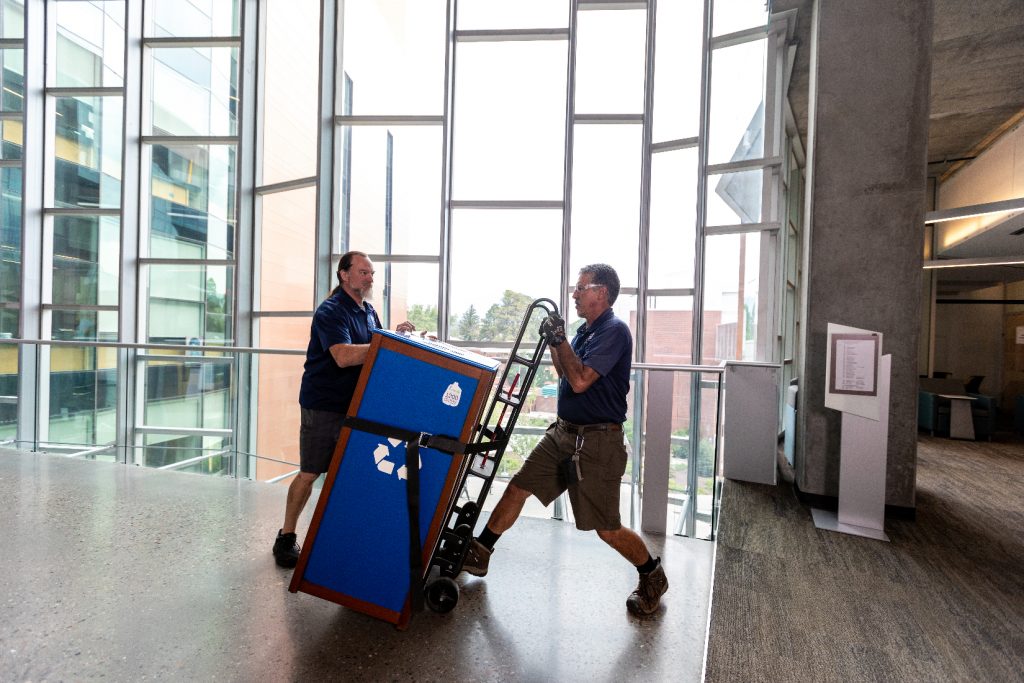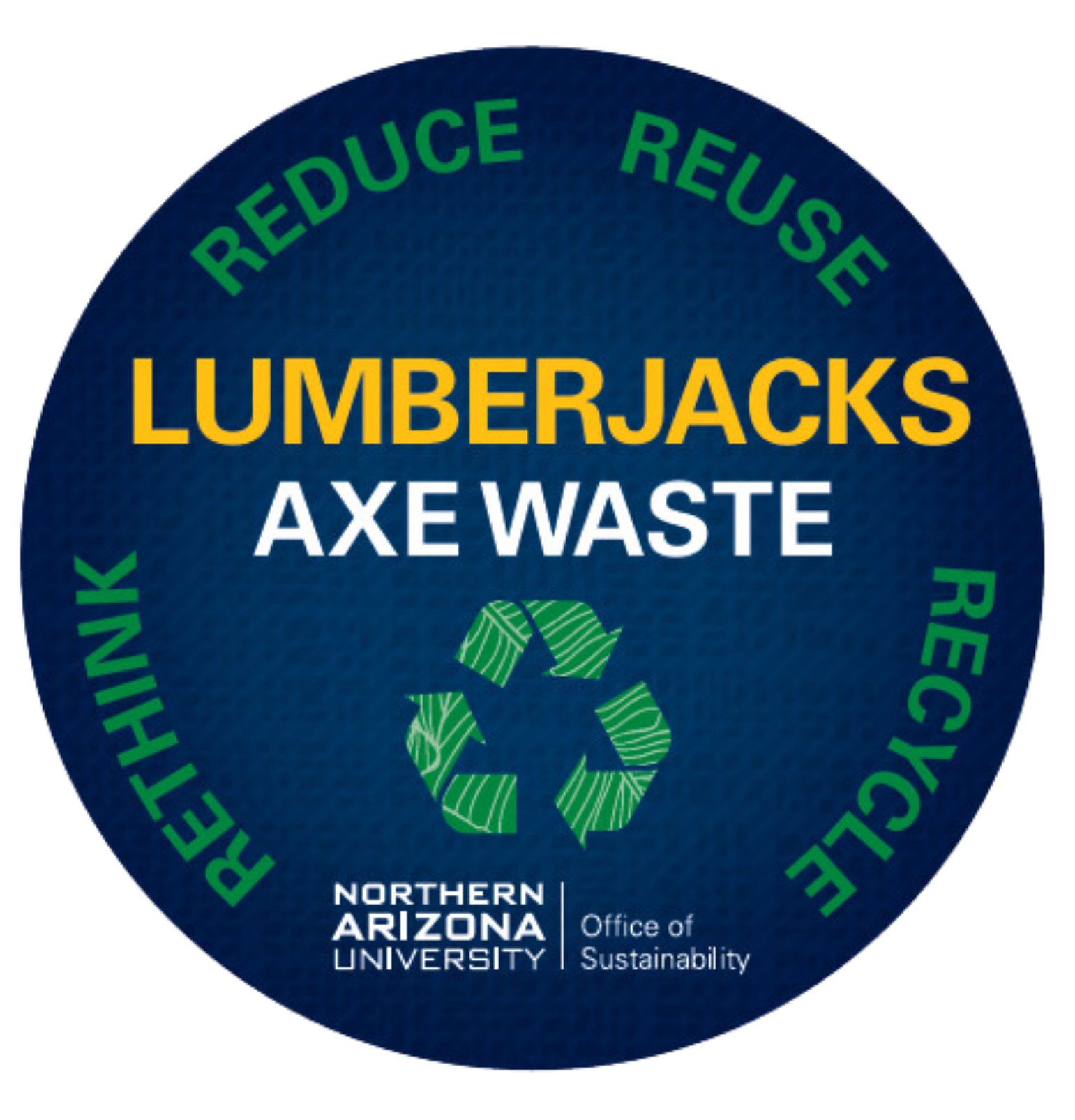After more than a year of steady progress and gradual implementation, the NAU Office of Sustainability has officially finalized its updated campuswide recycling program. Complete with uniform recycling bins and changes to office waste practices, this initiative aims to streamline the recycling process by minimizing confusion and optimizing custodial work.
The recycling rehaul is part of NAU’s broader objectives of becoming a zero-waste campus by emphasizing waste reduction and reaching carbon neutrality by 2030 under the NAU Climate Action Plan.
“When we generate so much waste on campus and it gets shipped to the landfill, there are a lot of associated emissions on that supply chain,” said Avi Henn, Office of Sustainability program manager. “We’re trying to remove as many barriers as possible for people to get educated about reducing waste, and recycling is the first line of defense. We want to start diverting more materials from the landfill to recycling.”
Beginning in Spring 2023, the Office of Sustainability partnered with NAU administrators and the student-led NAU Green Fund to completely overhaul on-campus recycling. The campus recycling bins have historically varied in location, size, color and model, making it easy for students, faculty and staff to place their waste products in the incorrect bins.
This semester, NAU finished deploying additional recycling bins in high-traffic areas and replacing outdated receptacles with a consistently designed waste system. All recycling bins on campus will now be blue and labeled with a prominent white recycling symbol, and landfill bins will be brown and labeled with a landfill symbol.
All bins also have a visual guide detailing which items can be placed in each bin, including QR codes for information regarding on-campus glass recycling. While Flagstaff no longer accepts glass materials in normal recycling bins, NAU has nine labeled recycling bins strictly used for diverting glass waste from landfills.
Studies have shown that recycling rates can improve, and even triple, when avenues of recycling are presented as more convenient and sustainably impactful than waste bin alternatives. Now that the new bins have been deployed, Henn said the office will now get to work on recycling education measures around campus, including partnerships with Campus Living to convince students to go green.
To maximize custodial worker time, NAU also will be discontinuing office clearing and removing personal trash cans from individual offices. Instead, faculty and staff are encouraged to use deskside recycling bins or the larger landfill receptacles placed in common areas.
“Hopefully, over the next year or two, we’re going to start seeing some major shifts,” Henn said. “I would love to see that, especially in waste reduction.”
About two years ago, the Office of Sustainability began implanting sensors into dumpsters throughout campus to routinely measure the volume of waste within each receptacle. As the sensors collect data, Henn said NAU hopes to see more paper, cans and cardboard making it to the proper location.
In partnership with environmental labs and courses like ENV 101, the office will conduct regular waste audits to document how many contaminated materials are infiltrating the recycling bins, like liquids and plastics, and how many viable items are being misplaced in the landfill.
This data will help sustainability managers evaluate the efficacy of the recycling program and make any necessary changes as time progresses. In the meantime, Henn said he recommends students living on campus take the extra step to limit their waste production, from choosing reusable containers to ordering fewer packages.
“As the Office of Sustainability, we cannot reach our sustainability goals with only our efforts to bring more sustainable practices to campus,” Henn said. “Ultimately, it’s a combined effort, a collective responsibility.”
For additional information on how to recycle on campus, visit in.nau.edu/green-nau/recycling-at-nau/




